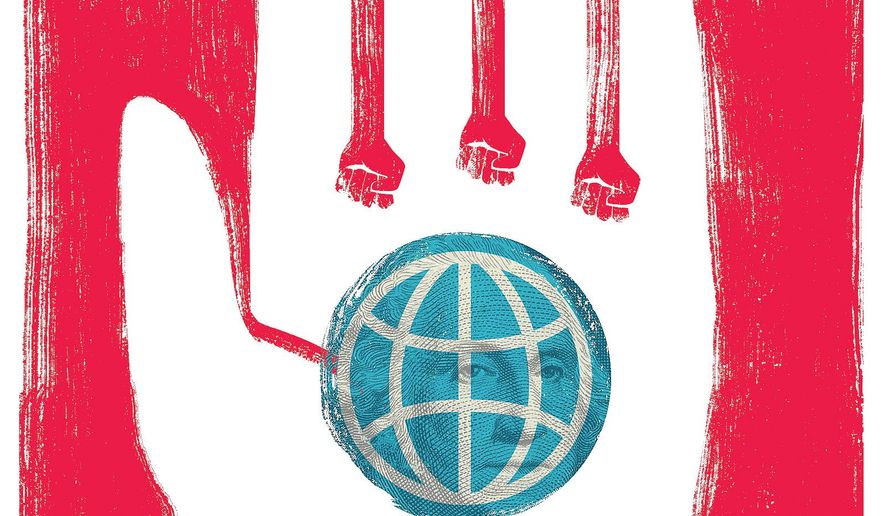OPINION:
There will not be a trade war, if President Trump stands by his principles on the tariffs. Because Mr. Trump has already made America great again. And our trade adversaries and cheaters need us more than we need them.
We cannot stand by and let slave states like China use unpaid slave labor to compete with our most highly productive workers in the world. But Mr. Trump can use his aluminum and steel tariffs as leverage to force better trade agreements.
Mr. Trump announced early in March modest tariffs of 25 percent on imported steel and 10 percent on imported aluminum. Those tariffs were intended to safeguard the national security interest in continued production of domestic steel and aluminum, as well as the interests of the workers who produce it.
Critics at CNBC questioned “what impact such a comparatively minor measure of protection for domestic production could in turn have on American firms that Trump has long championed.” The European Union resisted even those tariffs, saying it would not negotiate new trade terms “with a gun pointed at our head.”
That view seemed to prevail when the U.S. announced tariff exemptions for steel imports from the EU, as well as from Argentina, Brazil, Canada, Mexico and South Korea. But a clue for Mr. Trump’s doubters can be found in the fact that the announced exemptions even for allies were temporary, with an announced expiration date of May 1.
That worked for South Korea, the third-largest exporter of steel to the U.S., which agreed near the end of March to a quota in return for an indefinite exemption from the tariffs. But the real problem is several other countries flooding world markets with global overproduction, which depresses U.S. production and prices.
That leaves U.S. plants sitting idle, with the former workers laid off, destroying our vital skilled-labor pool necessary to maintain our Arsenal of Democracy. As Mr. Trump tweeted, without adequate Industrial Production, you aren’t a country.
Worldwide excess production capacity reached 737 million metric tons in 2016, which is expected to remain over 500 million tons through 2035. For 2017, U.S. import volumes were 15.5 percent higher than in 2016, equivalent to 27 percent of the U.S. market.
The exemptions announced late in March together would still allow roughly two-thirds of the world’s steel production to land in America’s ports without any tariffs or duties. Mr. Trump’s tariffs will only work to leverage better deals if they are comprehensive and don’t have exemptions.
Unless countries renegotiate a deal like South Korea’s, which sets workable limits to U.S. imports, nullifying domestic harm to U.S. industries and its workers from heavily subsidized global overproduction, often produced literally at slave wages. That is not free trade.
That is why Mr. Trump’s new top economic adviser, Larry Kudlow, is right when he says Mr. Trump’s tariffs do not involve a trade war, but only an opening offer on a renegotiation of trade agreements. China in particular faces the threat of domestic unrest if it cannot employ its oversupply of workers in production for the world’s biggest (free-) market, which is America.
The long-term principle and justification for tariffs is to establish wage parity with low-cost overseas workers, which will offset that effective subsidy for low-cost overproduction. Indeed, America’s domestic energy production in particular enjoys an inherent price advantage over foreign production, which creates an inherent advantage for the re-establishment of U.S. manufacturing, particularly over the overregulated EU.
This creates an opportunity to do what China does where it has an inherent price advantage, impose export tariffs on its own exports abroad. Such export tariffs on America’s own exports can substitute revenue for further U.S. tax cuts, maybe eliminating some state income taxes altogether.
So, for example, a liquefied natural gas terminal in former industrial powerhouse Maryland can be combined with dramatic state income tax cuts in Maryland, offset with state revenues from an export tariff on lowest in the world priced U.S. natural gas.
• David Wallace is president of the FAIR Energy Foundation. He also is a Maryland Tea Party activist and 2014 Republican nominee for Congress.




Please read our comment policy before commenting.